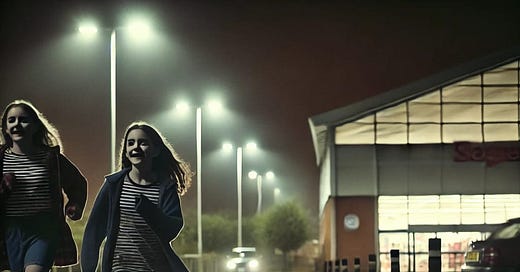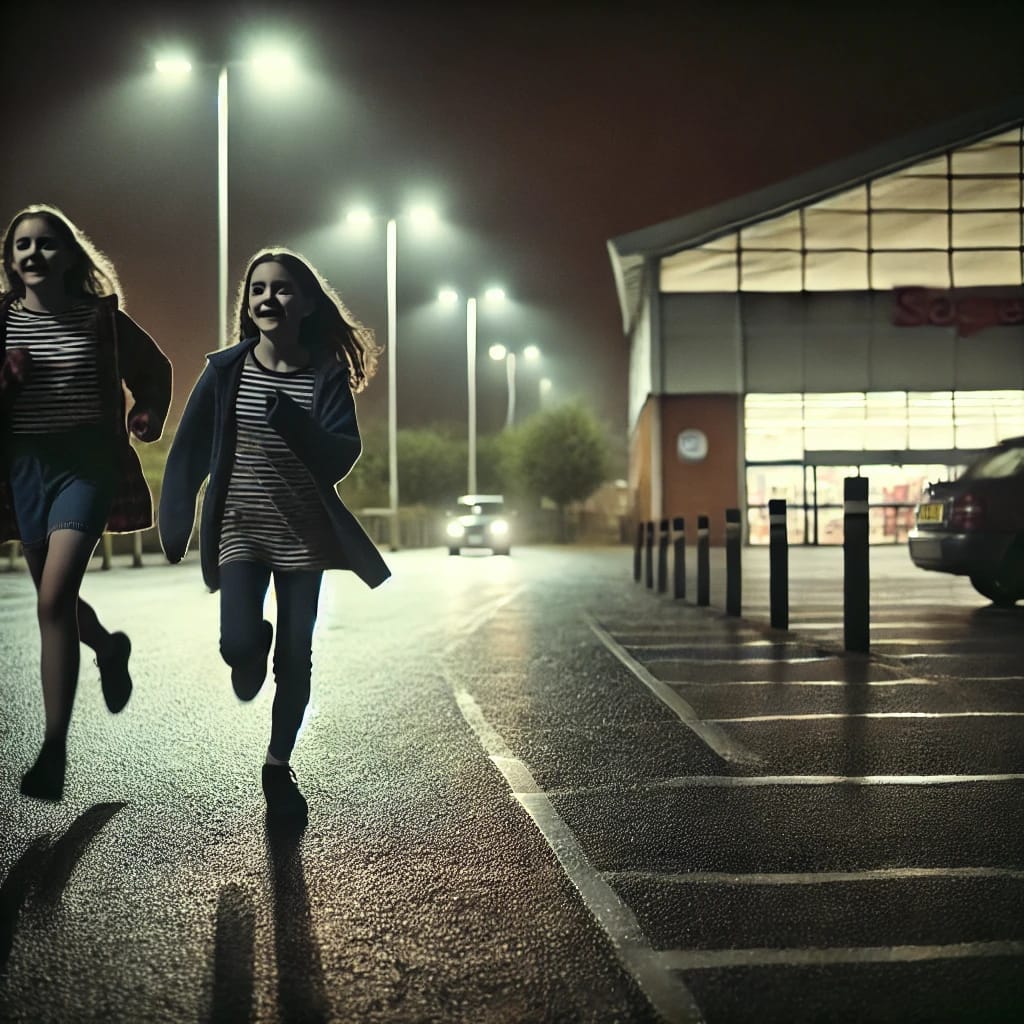Feeling helpless is an unsettling and frustrating experience. It's that gut-wrenching moment when you realise that, despite your best efforts, you're powerless to change what's happening around you. Recently, I had one of these moments with my 12-year-old daughter.
She ran away.
Like many teens, she was going through some "issues", getting into trouble at school and generally feeling overwhelmed by whatever was happening in her world. That night, she and her friend decided that instead of going home to face the music that they would stay out all night.
We had tracking on her phone, but she had turned it off. Our only clue as to her whereabouts came when she used her bank card at a local supermarket. We raced over in the car, and as soon as she saw us, she and her friend ran away laughing into the night.
As I stood there, heart pounding, the absurdity of the situation hit me like a brick. Here I was, a grown man, contemplating chasing two schoolgirls across a busy car park at night. Not a good look. I could easily have caught her, but then what? Drag her kicking and screaming back to the car? Restrain her in the car to stop her from running again at the next red light? And what about her friend? It just wasn’t worth it. I had to let her go, not just because of how it would appear, but because I realised she saw this as a game, not recognising the danger of her actions.
Driving the short distance home, her mother and I arguing about what to do I felt lost, powerless. Helplessness consumed us both as we grappled with the fact that, at that moment, there was absolutely nothing we could do. She had the upper hand, she knew how it would have looked if I had chased her. But then something clicked for me. I had to accept that feeling helpless wasn’t going to help anyone, it was only feeding into the problem. I realised we needed to ask for help.
Now, I’m not someone who calls the police lightly, especially on a Friday night when they’ve got enough to deal with. But it was the sensible option. The operator was amazing, kind, patient, and reassuring. She made me feel like I wasn’t wasting their time, and that they could help, which in turn helped calm my partner, who was beside herself.
Fortunately, before the police arrived, my daughter walked through the door, full of “sorries” and feeling guilty. All thought of her previous transgressions erased by our relief to have her home.
A seemingly happy ending, though the real issue was still lurking beneath.
The reason she ran away was because, like us whilst she was gone, she felt helpless. She was scared, avoiding the consequences she knew were waiting at home. And that’s what helplessness does; it drives people to delay the inevitable rather than face it. When you're stuck in that mindset, asking for help can feel like admitting defeat. But here's the paradox: asking for help isn’t weakness, it's one of the strongest things you can do.
Why Do We Struggle to Ask for Help?
In a world that constantly bombards us with the notion of perfection, be it on social media, TV, or even within our families, the pressure to appear as though we’ve got it all together can be overwhelming. Parents, especially, feel this. There’s this silent expectation that we should know exactly what to do with our children at all times. But let’s be real, no one has all the answers.
Our kids feel this too, often far more intensely than we realise. Society tells them they need to be the best, and schools push them to excel. Mistakes aren’t tolerated as part of the learning process but are often met with punishment and consequences, rather than help and support. No wonder they bottle things up, fearing judgement, ridicule, or even worse, being seen as a failure.
Shifting Perspectives
That night, my daughter taught me something: we all need to reframe how we think about helplessness. It’s easy to fall into the trap of thinking that if you’re asking for help, you’ve failed. But that’s nonsense. Everyone, no matter how capable, needs support sometimes. Asking for help doesn’t diminish your ability; it simply means you’re smart enough to recognise when you’re out of your depth.
Helplessness should be viewed as a call to action, not a state of defeat. If you’re drowning, you don’t just sink, you call for a lifeline. And in many cases, that lifeline could be as simple as reaching out to someone who has been through it before, or even just typing a question into Google.
The Cost of Silence
Suffering in silence is never the answer. Yet so many of us do it, telling ourselves that we should be able to handle everything on our own. But the truth is, nobody can. If you’re feeling overwhelmed, stuck, or scared, there’s nothing shameful in asking for help. Whether it’s a friend, a family member, or a professional, seeking support can be the thing that gets you through the darkest moments. It's not just kids that need this reminder, us adults do too.
So, if you’re feeling helpless, remember that asking for help is the bravest thing you can do.






This is something I've struggled with all my life, especially after my disease started a few years ago. As you said, it's one of the bravest things we can do!